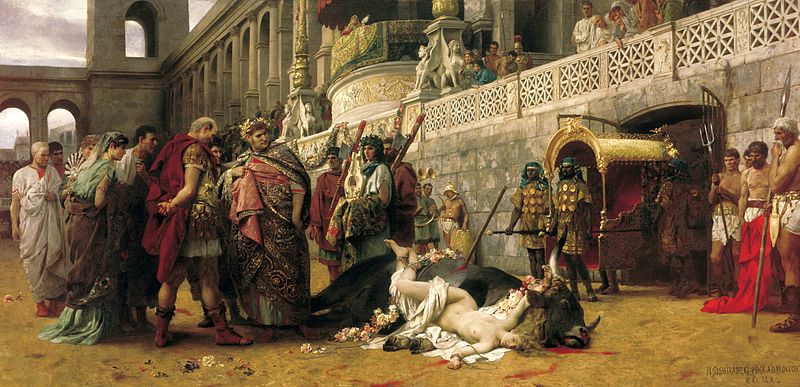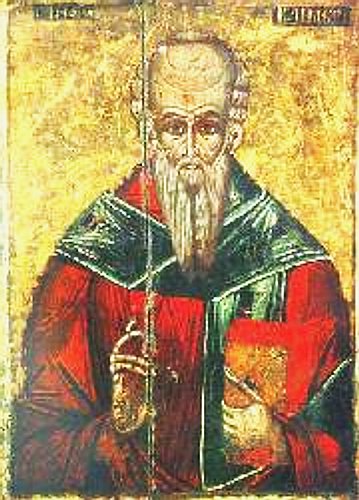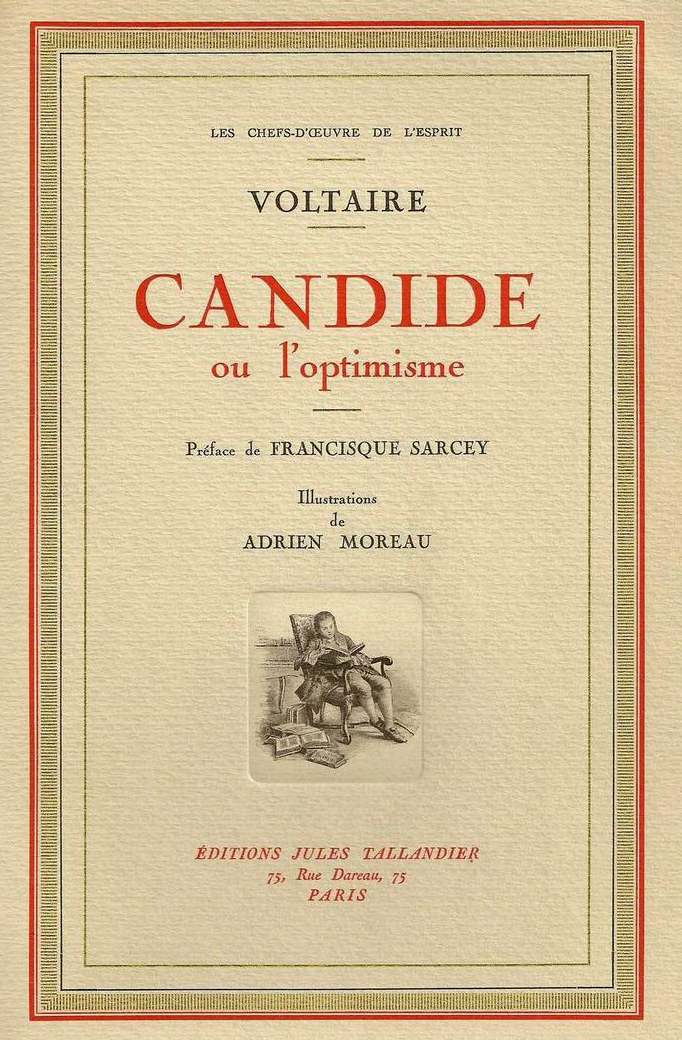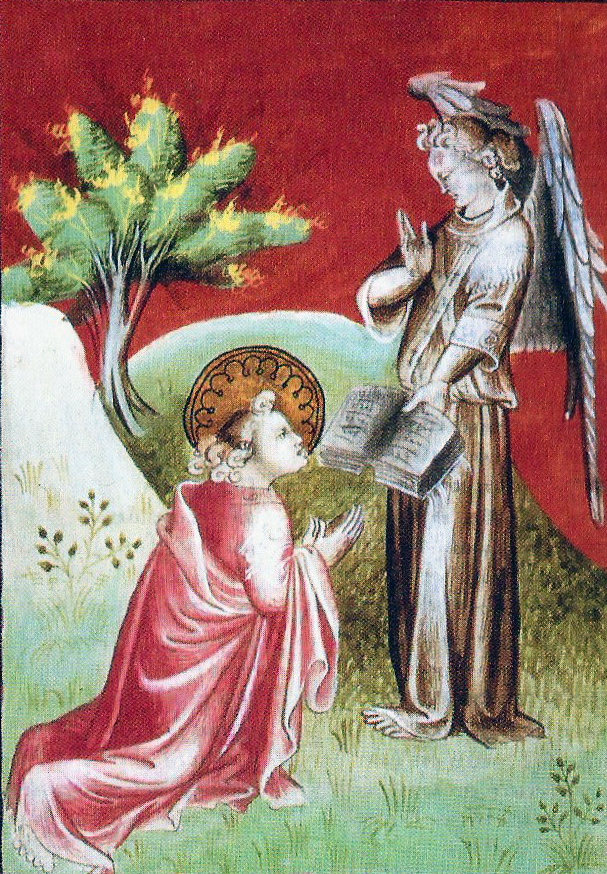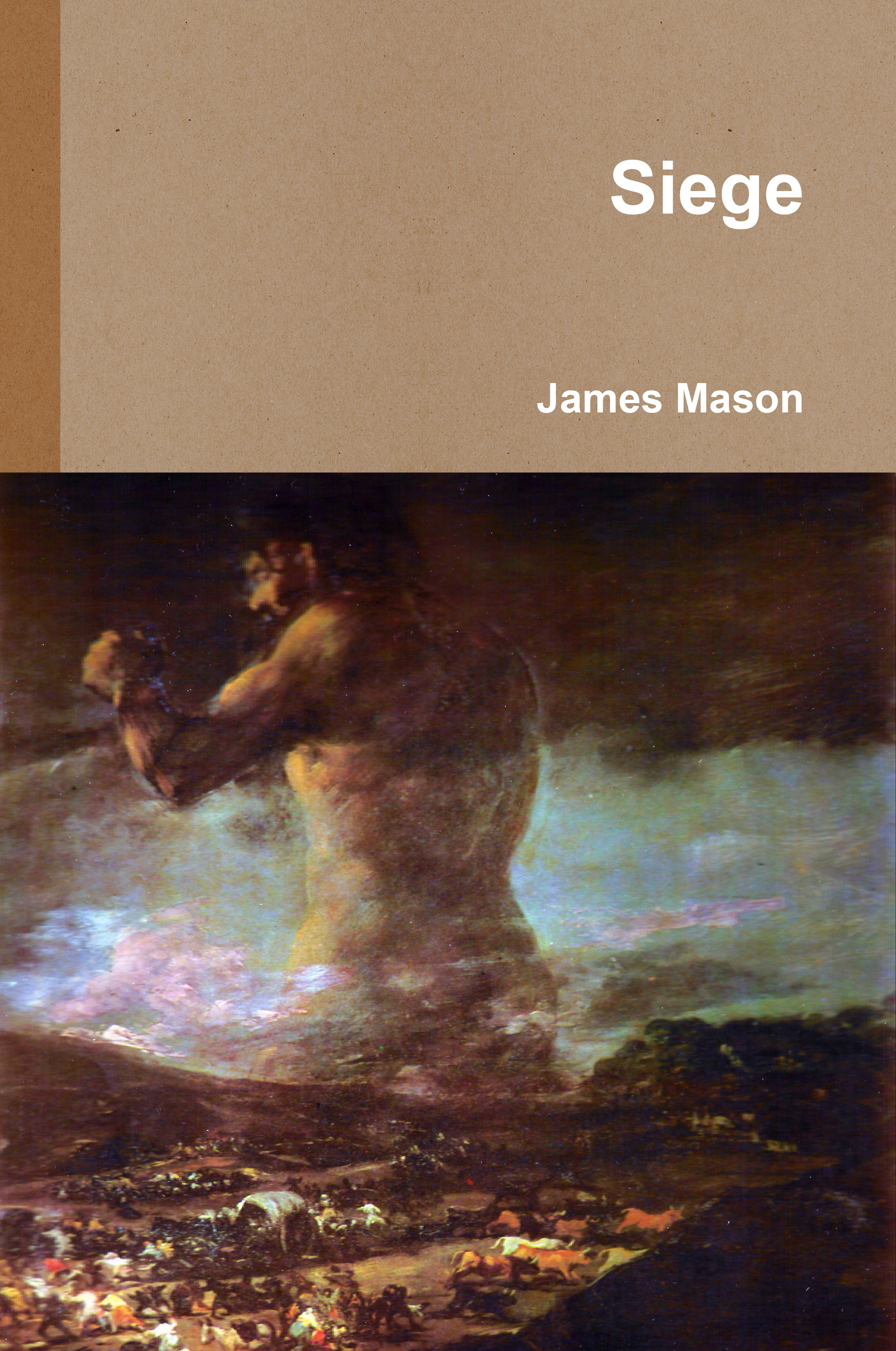Editor’s Note: The book of Porphyry, of which the Christians destroyed all the copies and only fragments remain, is worth more than the opus of all Christian theologians together.
Yesterday I sent a message to Joseph Hoffmann, author of Porphyry’s ‘Against the Christians’: The Literary Remains. I asked him if he is willing to republish it in Lulu, as it is out-of-print (I own the copy I purchased in 1994).
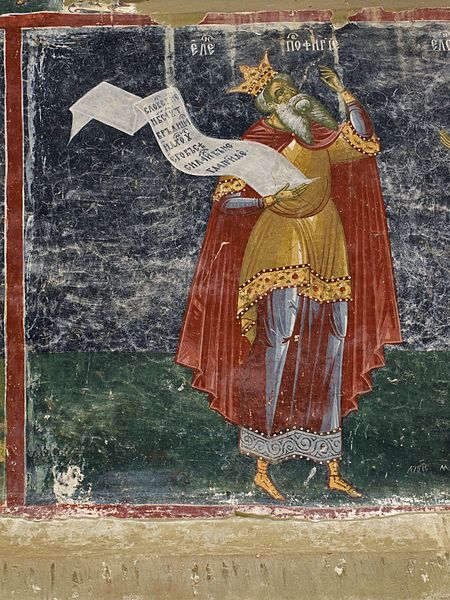
Porphyry, a detail of the Tree of
Jesse, 1535, Sucevița Monastery.
______ 卐 ______
Below, abridged translation from the first volume of Karlheinz
Deschner’s Kriminalgeschichte des Christentums
(Criminal History of Christianity)
Celsus and Porphyry: the first adversaries of Christianity
Before looking more closely at these new Christian majesties, let us look briefly at two of the first great adversaries of Christianity in antiquity.
Soon the pagans knew how to spot the weak points in the argument of the holy fathers and refute them, when not leading them ad absurdum.
While it is true that the first Christian emperors ordered the destruction of the anti-Christian works of these philosophers, it is possible to reconstruct them in part by cutting off the treatises of their own adversaries. Celsus’ work in particular is derived from a response of eight books written by Origen about 248. The most influential theologian of the early days of Christendom evidently took a lot of work in refuting Celsus, which is all the more difficult because in many passages he was forced to confess the rationale of his adversary.
In spite of being one of the most honest Christians that can be mentioned, and in spite of his own protests of integrity, in many cases Origen had to resort to subterfuges, to the omission of important points, and accuses Celsus of the same practices. Celsus was an author certainly not free of bias but more faithful to the reality of the facts. Origen reiterates his qualification of him as a first-class fool, although having bothered to write an extended replica ‘would rather prove the opposite’ as Geffcken says.
The True Word (Alethés Logos) of Celsus, originating from the end of the 2nd century, is the first diatribe against Christianity that we know. As a work of someone who was a Platonic philosopher, the style is elegant for the most part, nuanced and skilful, sometimes ironic, and not completely devoid of a will to conciliation. The author is well versed in the Old Testament, the Gospels, and also in the internal history of the Christian communities. Little we know of his figure, but as can be deduced from his work he was certainly not a vulgar character.
Celsus clearly distinguished the most precarious points of Christian doctrine, for example the mixing of Jewish elements with Stoicism, Platonism, and even Egyptian and Persian mystical beliefs and cults. He says that ‘all this was best expressed among the Greeks… and without so much haughtiness or pretension to have been announced by God or the Son of God in person’.
Celsus mocks the vanity of the Jews and the Christians, their pretensions of being the chosen people: ‘God is above all, and after God we are created by him and like him in everything; the rest, the earth, the water, the air and the stars is all ours, since it was created for us and therefore must be put to our service’. To counter this, Celsus compares ‘the thinness of Jews and Christians’ with ‘a flock of bats, or an anthill, or a pond full of croaking frogs or earthworms’, stating that man does not carry as much advantage to the animal and that he is only a fragment of the cosmos.
From there, Celsus is forced to ask why the Lord descended among us. ‘Did he need to know about the state of affairs among men? If God knows everything, he should already have been aware, and yet he did nothing to remedy such situations before’. Why precisely then, and why should only a tiny part of humanity be saved, condemning others ‘to the fire of extermination’?
With all reason from the point of view of the history of religions, Celsus argues that the figure of Christ is not so exceptional compared to Hercules, Asclepius, Dionysus and many others who performed wonders and helped others.
Or do you think that what is said of these others are fables and must pass as such, whereas you have given a better version of the same comedy, or more plausible, as he exclaimed before he died on the cross, and the earthquake and the sudden darkness?
Before Jesus there were divinities that died and resurrected, legendary or historical, just as there are testimonies of the miracles that worked, along with many other ‘prodigies’ and ‘games of skill that conjurers achieve’. ‘And they are able to do such things, shall we take them for the Sons of God?’ Although, of course, ‘those who wish to be deceived are always ready to believe in apparitions such as the ones of Jesus’.
Celsus repeatedly emphasises that Christians are among the most uncultured and most likely to believe in prodigies, that their doctrine only convinces ‘the most simple people’ since it is ‘simple and lacks scientific character’. In contrast to educated people, says Celsus, Christians avoid them, knowing that they are not fooled. They prefer to address the ignorant to tell them ‘great wonders’ and make them believe that
parents and teachers should not be heeded, but listened only to them. That the former only say nonsense and foolishness and that only Christians have the key of the things and that they know how to make happy the creatures that follow them… And they insinuate that, if they want, they can abandon their parents and teachers.
A century after Celsus, Porphyry took over the literary struggle against the new religion. Born about 233 and probably in Tyre (Phoenicia), from 263 Porphyry settled in Rome, where he lived for decades and became known as one of the main followers of Plotinus.
Of the fifteen books of Porphyry’s Adversus Christianos (Against the Christians), fruit of a convalescence in Sicily, today only some quotations and extracts are preserved. The work itself was a victim of the decrees of Christian princes, Constantine I and then, by 448, the emperors Theodosius II and Valentinian III who ordered the first purge of books in the interest of the Church.
Unfortunately, the conserved references of the work do not give as complete an idea as in the case of Celsus. We may suppose that Porphyry knew The True Word; some arguments are repeated almost verbatim, which is quite logical. As to the coming of Christ Porphyry asks, for example, ‘Why was it necessary to wait for a recent time, allowing so many people to be damned?’
Porphyry seems more systematic than Celsus, more erudite; he excels as a historian and philologist, as well as in the knowledge of the Christian Scriptures. He masters the details more thoroughly and criticises the Old Testament and the Gospels severely; discovers contradictions, which makes him a forerunner of the rationalistic criticism of the Bible. He also denies the divinity of Jesus: ‘Even if there were some among the Greeks so obtuse as to believe that the gods actually reside in the images they have of them, none would be so great as to admit that the divinity could enter the womb of virgin Mary, to become a foetus and be wrapped in diapers after childbirth’.
Porphyry also criticises Peter, and above all Paul: a character who seems to him (as to many others to date) remarkably disagreeable. He judges him ordinary, obscurantist and demagogue. He even claims that Paul, being poor, preached to get money from wealthy ladies, and that this was the purpose of his many journeys. Even St Jerome noticed the accusation that the Christian communities were run by women and that the favour of the ladies decided who could access the dignity of the priesthood.
Porphyry also censures the doctrine of salvation, Christian eschatology, the sacraments, baptism and communion. The central theme of his criticism is, in fact, the irrationality of the beliefs and, although he does not spare expletives, Paulsen could write in 1949:
Porphyry’s work was such a boast of erudition, refined intellectualism, and a capacity for understanding the religious fact, that it has never been surpassed before or since by any other writer. It anticipates all the modern criticism of the Bible, to the point that many times the current researcher, while reading it, can only nod quietly to this or that passage.
The theologian Harnack writes that ‘Porphyry has not yet been refuted’, ‘almost all his arguments, in principle, are valid’.



